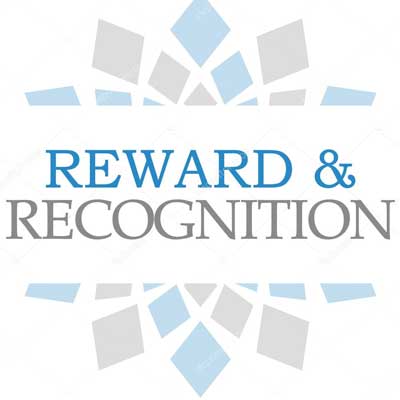Best Practices in Rewards & Recognition | Aparna Sharma | Senior HR Professional & Certified Corporate Director I Editor’s Collection
 80% of employees feel that they are not recognized for their contributions. 40% of employees say that they would put more energy into work if they were recognized more often. Recognition. Why is it so important for employees and what does it do?
80% of employees feel that they are not recognized for their contributions. 40% of employees say that they would put more energy into work if they were recognized more often. Recognition. Why is it so important for employees and what does it do?
We are all aware of “feel good” chemicals in the human brain? Dopamine is a neurotransmitter that is produced in the human brain because of positive emotions. Recognition is naturally and psychologically related to employee performance, as it is known to produce dopamine.
A study by Gallup identifies recognition as one of the easiest strategies that organizations could use. Its benefits are ample:
- Motivates employees
- Brings a sense of accomplishment
- Makes employees feel valued
- Boosts employee engagement
- Increases productivity
- Increases company loyalty
In organizations, recognition can come from different people within the organization. The same study showed that employees rated their most memorable recognition: 28% employees manager, 24% CEO, 12% manager’s manager, 10% customer and 9% peers.
As mentioned earlier, experts suggest it’s one of the easiest strategies to implement within an organization.
Here are five practices for employee recognition that organizations could follow and build in their organizations.
- Tailor recognition to the individual –
Research by Deloitte questions why companies haven’t changed age-old rewards systems when everything else has undergone a change in the HR. Leading companies are now understanding the need for recognizing individual employees in individual different ways. But why does Deloitte’s research stress on the need for personalized recognition? Because it remains authentic and correlates to high growth expectations.
Here’s an example: Imagine that a manager appreciates the contribution of an employee by gifting him one ticket to a football game. The truth is that particular employee doesn’t like football as much as he likes movies. And who goes alone to watch a football game? However, if the manager had asked the employee about his/her likes and hobbies, the recognition reward could have been more tailored to that particular employee.
- Teams need recognition too –
Organizations are often made up of different teams. Teams are made up of different individuals. Individuals should be recognized for their contributions, but so must teams. The reason: to imbibe a feeling of team spirit and teamwork; to keep every member motivated and to do better. Not every individual might get appreciated individually and that’s when recognition to a team can make each and every employee feel appreciated and valued.
- Recognition can be shown in different ways –
Recognition does not have to have a tangible form every time. A pat on the back, a social media mention for an employee’s good work, an appreciation card on the employee’s desk, a special mention in the weekly meeting, a lunch treat and a “thank you for the good work” note, are just some of the ways in which to show recognition.
- Make recognition a part of your daily work culture –
Some companies create formal recognition programs and some prefer to make recognition a part of the daily work culture. Experts suggest that making recognition an everyday culture helps build stronger relationships between the employees and managers. The result: consistent performance every day. Meeting daily goals, completing every day tasks, reaching bigger goals by ticking off smaller goals on the every day to-do list. When managers and organizations align recognition and appreciation with the larger company goals, daily gestures of employee recognition can boost performance and accelerate growth.
- Merge recognition with company values –
Recognition can be a tool to strengthen the company values as well. When companies merge company values with recognition programs, they grow faster. For example, if a company’s values put emphasis on innovation, its HR department should form programs that recognize innovative contributions of the employees. Employees would be more motivated to apply innovative solutions and innovation in their performance. Imagine how fast such a company would progress.


